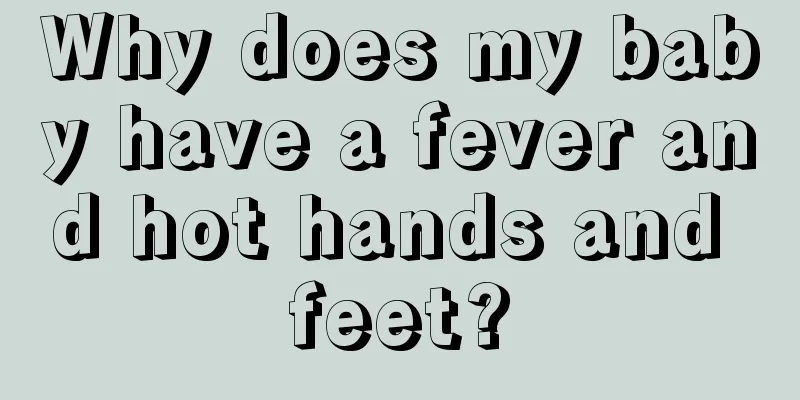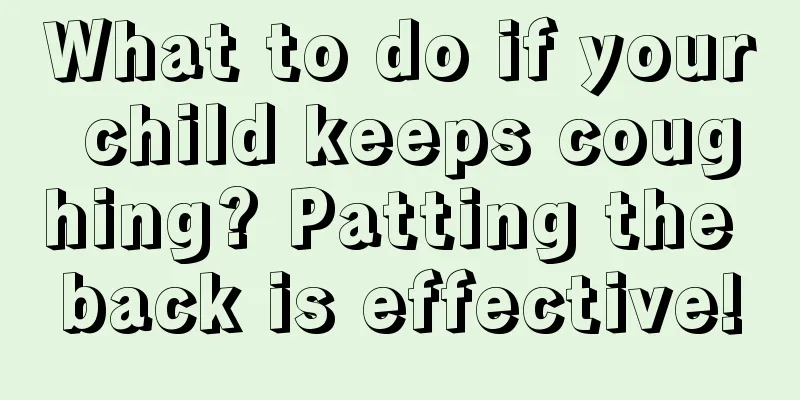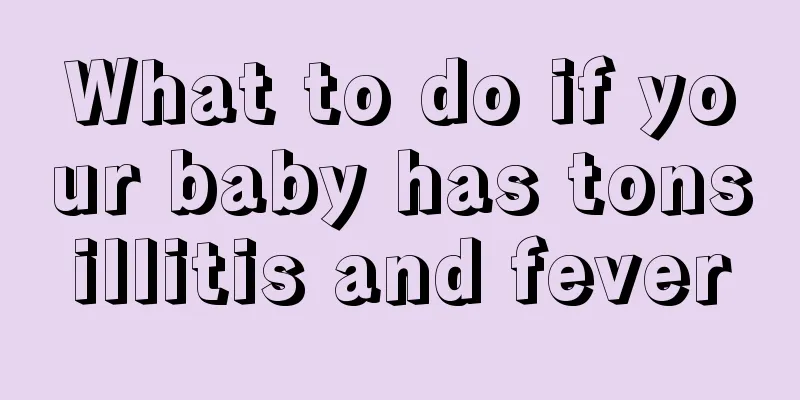Why does my baby have a fever and hot hands and feet?

|
If the baby has a fever, parents must be very cautious. After all, babies have poor resistance, and fever can cause great harm to children, and may even cause irreversible damage. Therefore, it is necessary to measure the baby's body temperature regularly. If the temperature is obviously high, physical cooling methods should be taken in time. At the same time, the cause of the baby's fever should be found. The common causes are as follows. First, why do children have fever and hot hands and feet? Fever means there is inflammation in the body and you need to take some antipyretics. It usually takes 5-7 days to get better. A child's fever of 39 degrees is already a high fever and should be treated promptly. If you cannot go to the hospital immediately, you need to observe the child's fever condition, such as whether the child has slow reaction, convulsions, or other abnormal reactions. Parents can use antipyretic drugs and do some physical cooling at home. A high fever above 39°C can easily cause convulsions in children. Children under 6 months old should be treated promptly when they have a fever because their condition changes rapidly. The World Health Organization recommends that no antipyretic drugs should be used for infants under 2 months old. Infants and young children under 3 months old should use drugs to reduce fever with caution, and physical methods should be used to reduce fever instead. If the antipyretic effect of medication is not good or the body temperature exceeds 39°C within two hours after taking medication, physical methods should be used to reduce the temperature. It takes a certain amount of time for drugs to take effect. When a child's temperature suddenly exceeds 40°C, physical methods should be used to reduce the fever immediately. Second, how many degrees is considered a fever for babies? Generally speaking, babies are in a critical period of growth and their metabolism is fast, so their body temperature will be slightly higher than that of adults. Moreover, for some premature babies, their body temperature is more easily affected by the external environment than full-term babies. So what temperature is considered a fever? 1. Armpit temperature The normal temperature of a baby's armpit is 36 to 37 degrees. Sometimes it may be slightly higher than 37 degrees, but if it exceeds 37.4 degrees, it can be considered a fever. If the body temperature is between 37.5 and 38.4 degrees Celsius, it is a low fever. If it exceeds 38.5 degrees, it is considered a high fever. 2. Rectal temperature The normal rectal temperature of a baby is between 36.9 degrees and 37.5 degrees. If it is 1 degree higher than the basal body temperature, it can be considered a fever. When the rectal temperature is around 38 degrees, it is a low fever. If it is greater than 39 degrees, it is a high fever. At this time, parents should pay attention. If the child has a continuous fever for more than 2 weeks, it means that the fever is long-term. 3. Oral temperature The normal oral temperature of a baby is between 36.4 degrees and 37.2 degrees. A temperature outside this range is considered a fever. Of these three measurement methods, axillary temperature is the least stable and is likely to change due to external factors. However, rectal temperature is not easily disturbed, so when measuring a baby's temperature, it is best to give priority to measuring rectal temperature. Third, what to do if a child has a fever of 39 degrees: 1. Warm water bath Dip a towel in warm water (the water temperature should not be too hot to touch) and wipe the neck, armpits, and thighs for 5 to 10 minutes. You can also use a commercially available "cooling patch" (or a household ice pack) on the forehead to help dissipate heat and reduce temperature. 2. Take antipyretics When your baby's fever exceeds 38.5 degrees, the doctor will consider using oral medications or rectal suppositories to reduce your baby's fever. Or when the above physical measures are not effective, oral antipyretics can be taken to reduce the temperature. 3. Ventilation and heat dissipation Ventilate more, pay attention to heat dissipation, wear loose clothes, and avoid wrapping yourself with a quilt. You can use air conditioning in the summer and control the room temperature at around 27℃. Remember to open windows regularly to allow air convection in the room. 4. Ensure moisture Drink plenty of water and eat liquid foods, such as watermelon juice, to ensure that the body has sufficient energy and water. 5. Take off excess clothing If your baby's limbs, hands and feet are warm and he is sweating all over, it means he needs to dissipate heat and he can wear less clothes. |
<<: What should I do if my child has a hoarse voice? These methods deal with
>>: What is going on when red spots appear when the baby’s fever goes down?
Recommend
What foods can stimulate the appetite and help digestion in children?
In summer, the temperature is high and people swe...
How to treat rhinitis in a three-year-old child
For children, rhinitis is very uncomfortable. Of ...
Children will die if they get this disease. Parents should wake up.
Although medical conditions are getting better an...
How to treat children's heart fire and liver heat
Children are the apple of their parents' eyes...
Is it normal for a newborn to poop while eating?
Many things happen to newborns that adults do not...
What should I do if my baby has anemia for a long time?
As parents, we are most reluctant to see our chil...
How to treat baby's spleen and stomach deficiency?
From time to time, we often find that our babies ...
Why does my baby's legs become weak when walking?
Every baby coming into the world makes family lif...
What causes laryngitis in babies? Viral infection is the most common
Baby laryngitis is usually acute and serious, and...
What is the reason for a two-year-old baby to have a fever and convulsions?
Families are most worried about their children ha...
What causes newborns to spit?
Babies are the cutest when they are two or three ...
Newborns sometimes retch
Most of the time, dry heaving is related to the f...
At what age can children eat Cordyceps sinensis?
As we all know, Cordyceps sinensis is a tradition...
What causes strawberry tongue in children?
Many people don’t know what strawberry tongue mea...
What is the normal height for a 10 year old child?
The height of the child is the most concerned iss...









